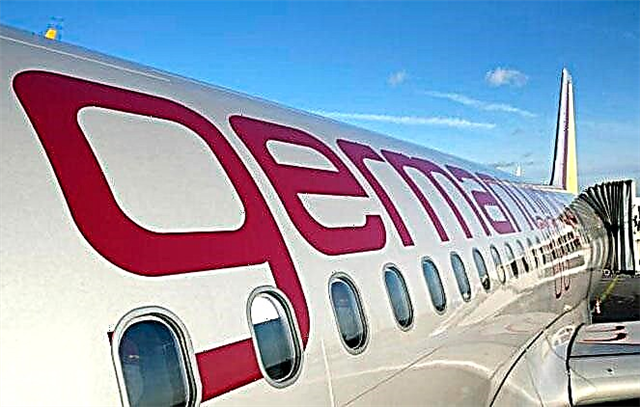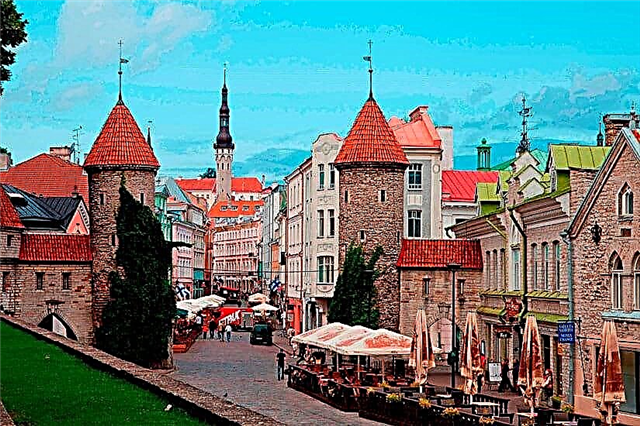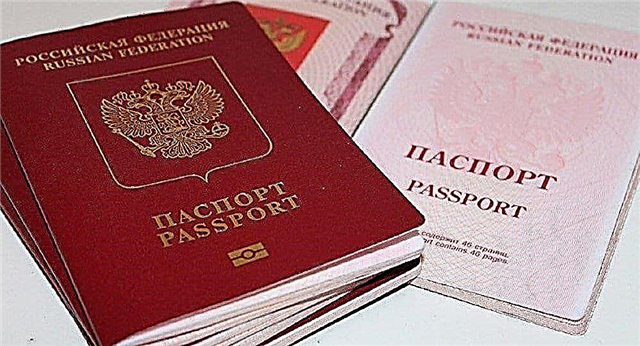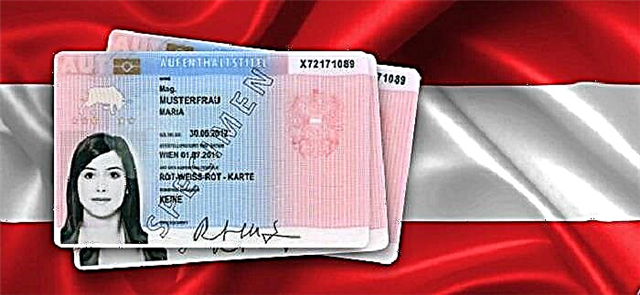The developing economy, high standard of living and political stability make the Republic of Austria a popular destination for immigration. The right to long-term residence is granted to foreigners by a residence permit in Austria. Methods for obtaining official status are usually tied to a specific purpose of stay. It is not easy to move legally, so you should study migration legislation and find out what rules for issuing a document apply to each category of applicants.

Benefits of a residence permit
When deciding on a residence permit, you need to weigh all the pros and cons of moving. Speaking more specifically about what gives a residence permit in Austria, we can highlight the main advantages:
- the right to permanently reside in the country;
- the possibility of obtaining a residence permit for family members;
- visa-free entry to the EU countries;
- the opportunity to find a job;
- after 6-10 years (depending on individual criteria) you can obtain citizenship;
- the opportunity to do business.
Varieties of the Austrian residence permit
The right to foreigners to stay in Austria for more than 180 days is given by two types of permits:
- Aufenthaltserlaubnis - right to stay.
- Niederlassungsbewilligung - right of residence.
In accordance with §8 part 3 of the Federal Law on Settlement and Residence in Austria (NAG), 12 types of residence permits are issued:
 The Red-White-Red-Card is an immigration program for highly qualified professionals and their families.
The Red-White-Red-Card is an immigration program for highly qualified professionals and their families.- Red-White-Red-Card plus (Red-white-red card plus) - issued to holders of the "Red-white-red card", "Blue card" if they have worked in accordance with the qualification requirements of these cards for at least 21 months during last 2 years. Allows you to freely choose your place of work.
- Blaue Karte EU (Blue Card) - received by foreigners who come to work at the invitation of an Austrian employer.
- Niederlassungsbewilligung (residence permit) - gives the right to temporary residence and employment.
- Niederlassungsbewilligung - ausgenommen Erwerbstätigkeit (residence permit - except employment) - residence without the right to work.
- Niederlassungsbewilligung - Angehöriger (residence permit - relative) - issued to family members of an Austrian citizen without the right to work.
- Daueraufenthalt - EU (permanent residence) - issued after 5 years of residence in the country, gives the right to permanently live and work.
- Familienangehöriger (family member) - received by close relatives of an Austrian citizen, gives the right to live and work.
- Niederlassungsbewilligung - Künstler (residence permit - artists) - gives the right to temporary work to representatives of creative professions.
- Niederlassungsbewilligung - Sonderfälle unselbständiger Erwerbstätigkeit (residence permit - special cases of employment) - issued for temporary employment to persons who are not subject to the Federal Law on the Employment of Foreigners, for example, a diplomat's housekeeper.
- Niederlassungsbewilligung - Forscher (residence permit - researcher) - for persons engaged in research work.
- Aufenthaltsbewilligung (Residence Permit) - gives the right to temporary residence for foreigners who have come for various purposes, for example, for study or on a business trip.
Who is eligible to receive
In accordance with the law, obtaining a residence permit in Austria is possible if the applicant meets the following conditions:
- does not pose a threat to national security;
- has housing in the country;
- able to confirm financial viability;
- has medical insurance;
- has a language certificate confirming knowledge of the German language at the A1 level and above.
In Austria, quotas are set annually for the issuance of a residence permit. The distribution of quotas is carried out at the federal level.
Each type of residence permit has its own limit on the permissible number of immigrants. Quotas do not apply to certain groups of persons, for example, diplomats, highly qualified specialists, relatives of an Austrian citizen.
 Most often, a residence permit in Austria for Russians, Ukrainians, Belarusians, as well as immigrants from other CIS countries is issued if the applicant belongs to one of the following categories:
Most often, a residence permit in Austria for Russians, Ukrainians, Belarusians, as well as immigrants from other CIS countries is issued if the applicant belongs to one of the following categories:
- Financially independent person.
The applicant must have a regular monthly income (for example, receive a pension, income from activities abroad). The standard rates established by the General Social Security Act (ASVG) for certain categories of the population are taken into account, and these amounts are doubled. Income requirements for 2021: for one person - 1,866.12 euros (132,538 rubles), for a family - 2,797.94 euros (198,718 rubles), for a child - 287.94 euros (20,450 rubles. ). In addition, the Austrian residence permit for financially independent persons is issued if you have a higher education. - Self-employed personnel who work in key sectors of the Austrian economy (Red-White-Red-Card for self-employed key workers). Feedback from investors suggests that they pay attention to the following criteria: - the size of the investment;
- creation of new jobs;
- introduction of advanced technologies;
- significance for the region. - Schoolchildren and students. Requirements include school enrollment and the ability to pay tuition and living expenses.
- Spouse, unmarried children under 18 years of age (family reunification).
- Persons who came to work (employment).
To obtain a residence permit, you must issue an invitation from a specific employer. This basis applies to the following categories:
- qualified personnel;
- representatives of rare professions;
- artists;
- scientists and researchers;
- volunteers;
- graduates of Austrian universities;
- specialists who are sent on a business trip.
Registration process
Those for whom the question of how to obtain a residence permit in Austria in 2021 is relevant should be aware that the initial residence permit is issued at the Austrian embassy (consulate) in their home country.
The order of registration for each category of applicants will be different. However, there are several standard steps:
- Buying or renting an apartment in Austria and obtaining a document confirming registration at the place of residence. It is worth noting that a residence permit when buying real estate in the country is not issued, but having your own home is a great advantage.
- Obtaining Austrian health insurance, which covers all types of risks (they can take road health insurance with coverage significantly exceeding 30,000 euros).
- Preparation of documents (collection, official translation, apostille affixing).
- Submission of an application along with a package of papers for a residence permit to the Austrian Embassy.
- After receiving a positive decision - issuing a national visa category D to enter the country.
- Arrival in the Republic of Austria and obtaining a residence permit.
Basic paper
 The list of documents depends on the type of residence permit. The standard package looks like this:
The list of documents depends on the type of residence permit. The standard package looks like this:
- Completed and signed application form.
- 2 photos (size 45 x 35 mm, not older than 6 months).
- Valid international passport.
- Birth certificate.
- A document confirming the place of residence in Austria (a rental agreement or an extract from the cadastre of ownership).
- Certificate of no criminal record (maximum limitation period - 3 months before filing).
- A document confirming the availability of funds for living (bank statements, tax return), sufficient to cover the monthly costs. Amount for 2021: 933 euros (66,442 rubles) - for an adult, 1,399 euros (99,628 rubles) - for a married couple, 144 euros (10,255 rubles) - for a child.
- Medical insurance.
- Language certificate.
- Receipt of payment of the application processing fee and partial state fee (the second part of the fee is paid in Austria).
Depending on the basis for obtaining a residence permit, additional documents will be required:
- For financially independent persons, for pensioners - a certificate of income (statement from a bank account, certificate of the amount of pension).
- For students, schoolchildren - notification of admission to the university (school). If a minor child (up to 18 years old) moves on his own - a notarized permission to leave from both parents or proof of guardianship (divorce certificate, about the death of both parents, or a document stating that one of the parents is raising the child independently).
- For the spouse of an Austrian citizen - a marriage certificate.
- For employment - a contract, an invitation from the employer, diplomas of education.
- For scientific specialists (researchers) - an internship agreement from a certified research institution.
How long does the registration take and how much does it cost?
The embassy staff send the application along with the documents to the appropriate state institution in Austria for consideration. Immigration issues are handled by the Ministry of the Interior, the Ministry of Labor, Social Affairs, Health and Consumer Protection, and the Ministry for European and International Affairs.
Processing time and making a decision take at least 6-8 weeks. After entering the Republic of Austria, the applicant is immediately obliged to apply to the local immigration authorities for a residence permit.
The costs of obtaining a residence permit are:
- for processing an application - 120 euros (8 570 rubles), for children under 6 years old - 75 euros (5 356 rubles);
- for the production of an ID-card - 20 euros (1,428 rubles), for children under 6 years old - 50 euros (3,570 rubles);
- for personalization (scanning a photo, signature) - 20 euros (1,428 rubles).
Why can a residence permit be refused or canceled?
 The Austrian authorities have the right to refuse to issue a residence permit to a person who does not meet the established requirements. Common reasons include:
The Austrian authorities have the right to refuse to issue a residence permit to a person who does not meet the established requirements. Common reasons include:
- insufficient justification for obtaining the type of residence permit for which the applicant applies;
- incomplete package of documents or false information provided;
- the quota has been exhausted;
- the applicant violated the terms of stay in the country;
- the applicant poses a security threat or is a member of a terrorist organization.
In case of refusal, the applicant receives a notification, which indicates the reasons and the time frame for the appeal. Further actions will depend on the specific situation:
- If a person poses a danger to society, then it is unlikely that it will be possible to restore a residence permit after a refusal.
- Persons who do not fall within the established quota can apply next year.
- If the problem is an incomplete package of papers, you will need to provide the missing information.
The applicant has the right to appeal to the Austrian migration authorities or to appeal the decision in court. For the period of consideration of the complaint, it is allowed to stay on Austrian territory until a decision is made on this issue.
If the status is received unreasonably or the requirements regarding the terms of compulsory residence in Austria are not met, the residence permit is canceled. The consequences of such a decision can be quite serious, for example, deportation and deprivation of the right to enter the EU countries.
Is it possible to extend the residence permit
The period for which a residence permit is issued depends on the category of the applicant. An application for an extension is allowed to be submitted 90 days before the expiration of the document.
The procedure is the same as for the first visit, if the purpose of the stay has not changed. Only submit an application to the competent Austrian authority at the place of residence: the municipal office or magistrate, in Vienna - the Municipal Department 35.
A new card is issued within 14-21 days, notification of its readiness comes by mail.
Foreigners who have permanently resided in Austria for the past 5 years are eligible for permanent residence. The document confirming this status is renewed every five years.
You can apply for Austrian citizenship after 10 years of uninterrupted residence in the country (in some cases after 6 years). Among the basic requirements:
- knowledge of the German language and the history of Austria (a written examination is taken);
- presence in the last 3 years of stable work and income;
- no previous convictions;
- legal residence on Austrian territory;
- availability of housing;
- renunciation of the existing citizenship.
Key findings
Obtaining an Austrian residence permit is a complex process that requires moral and material costs. The document is issued under quotas if there are sufficient grounds, such as family reunification, employment, training.
The order of registration depends on the category of the applicant. To obtain the right to long-term residence in Austria, a citizen of Russia or another CIS country must provide a full set of documents and fulfill all the requirements of migration legislation.

 The Red-White-Red-Card is an immigration program for highly qualified professionals and their families.
The Red-White-Red-Card is an immigration program for highly qualified professionals and their families.









